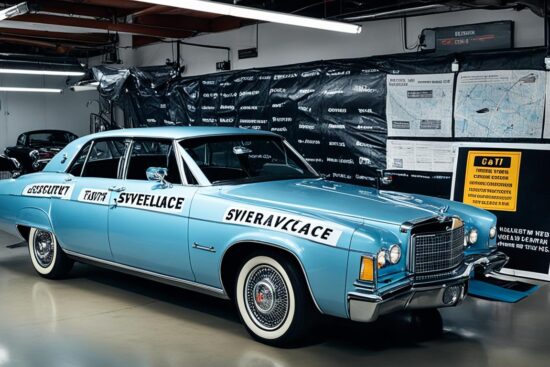
Introduction
In the world of transportation and logistics, ensuring the safety and security of your fleet is paramount. One of the most critical aspects of this is having comprehensive truck insurance coverage. Truck insurance not only protects your vehicles but also safeguards your business from potential financial losses in the event of accidents, theft, or other unforeseen circumstances.
Define Truck Insurance
Truck insurance is a type of commercial auto insurance designed specifically for vehicles used in the transportation of goods. It provides coverage for physical damage to the truck, liability protection for bodily injury or property damage caused by the truck, and coverage for cargo being transported.
Importance of Truck Insurance
Truck insurance is essential for several reasons:
- Legal Compliance: Operating a truck without insurance is illegal in most jurisdictions. Truck insurance ensures compliance with state and federal regulations.
- Financial Protection: Accidents involving trucks can result in substantial financial losses. Insurance provides a safety net to cover repair costs, medical expenses, and legal fees.
- Business Continuity: Without insurance, a single accident could potentially bankrupt a small trucking company. Insurance helps businesses stay afloat during challenging times.
Types and Categories
Truck insurance can be categorized into several types based on the coverage they offer:
Liability Insurance
Liability insurance covers damages to third parties, including bodily injury and property damage, resulting from an accident where the insured truck is at fault.
Physical Damage Insurance
Physical damage insurance protects the truck itself from damages caused by collisions, vandalism, theft, fire, or natural disasters.
Cargo Insurance
Cargo insurance provides coverage for the goods being transported by the truck. It reimburses the shipper or owner of the cargo in case of loss or damage during transit.
General Liability Insurance
General liability insurance covers non-accident-related incidents, such as slip-and-fall accidents at a trucking company’s premises or damage caused by faulty loading equipment.
Symptoms and Signs
Recognizing the need for truck insurance involves understanding the risks associated with operating commercial vehicles.
High-Risk Nature of Trucking Business
The trucking industry is inherently risky due to factors such as long hours on the road, heavy traffic, inclement weather conditions, and the size and weight of commercial trucks.
Legal Requirements
Federal and state laws mandate minimum insurance requirements for commercial vehicles. Failure to comply with these requirements can result in fines, penalties, or even the suspension of operating licenses.
Financial Vulnerability
Without adequate insurance coverage, trucking companies are vulnerable to significant financial losses in the event of accidents, lawsuits, or cargo damage.

Causes and Risk Factors
Several factors contribute to the need for truck insurance:
Accidents and Collisions
Traffic accidents involving commercial trucks can cause severe injuries, fatalities, and extensive property damage, leading to costly legal claims and settlements.
Cargo Theft and Damage
Cargo theft is a significant concern in the trucking industry, with billions of dollars’ worth of goods stolen each year. Insurance helps mitigate the financial impact of theft or damage to cargo.
Environmental Risks
Trucks are susceptible to damage from natural disasters such as floods, hurricanes, and earthquakes. Insurance provides coverage for repairs or replacements in such scenarios.
Diagnosis and Tests
Determining the appropriate truck insurance coverage involves assessing various factors:
Risk Assessment
Insurance providers evaluate factors such as the type of cargo transported, the driving records of truck drivers, the age and condition of the vehicles, and the routes traveled to determine insurance premiums.
Policy Customization
Trucking companies can tailor insurance policies to their specific needs, choosing coverage limits, deductibles, and additional endorsements based on their risk tolerance and budget.
Treatment Options
Once a truck insurance policy is in place, it’s essential to understand how to utilize it effectively:
Claims Process
In the event of an accident or loss, trucking companies must promptly file insurance claims and provide accurate documentation to expedite the claims process and maximize reimbursement.
Legal Support
Insurance providers often offer legal assistance and representation in case of lawsuits arising from accidents or liability claims, helping trucking companies navigate complex legal proceedings.
Preventive Measures
While insurance provides financial protection, proactive risk management strategies can help prevent accidents and minimize losses:
Driver Training and Safety Programs
Investing in comprehensive driver training programs and safety initiatives can reduce the likelihood of accidents and improve overall fleet safety.
Maintenance and Inspections
Regular maintenance and inspections of trucks help identify and address potential mechanical issues before they escalate into costly breakdowns or accidents.
Personal Stories or Case Studies
Real-life examples highlight the importance of truck insurance:
Case Study: ABC Trucking Company
ABC Trucking Company neglected to renew its insurance policy due to budget constraints. When one of its trucks was involved in a major accident, the company faced substantial legal fees and compensation claims, ultimately leading to bankruptcy.
Personal Story: John’s Hauling Services
John, a small business owner, credits his comprehensive truck insurance policy for saving his business after a severe hailstorm damaged several of his trucks. Thanks to insurance coverage, John was able to repair the vehicles and resume operations without significant financial strain.
Expert Insights
Industry experts emphasize the significance of truck insurance:
Dr. Emily Smith, Transportation Safety Specialist
“Truck insurance is not just a legal requirement; it’s a crucial risk management tool for trucking companies. Investing in comprehensive coverage can safeguard your business and ensure continuity in the face of unforeseen challenges.”
Mark Johnson, Insurance Broker
“Every trucking company, regardless of size, should prioritize insurance coverage tailored to their specific needs. While it may seem like an added expense, the cost of being underinsured far outweighs the premiums paid for comprehensive coverage.”
Conclusion
Truck insurance is a vital aspect of managing risk and ensuring the long-term success of trucking businesses. By understanding the types of coverage available, recognizing the signs of risk, and investing in proactive risk management strategies, trucking companies can protect their assets, their employees, and their bottom line.












